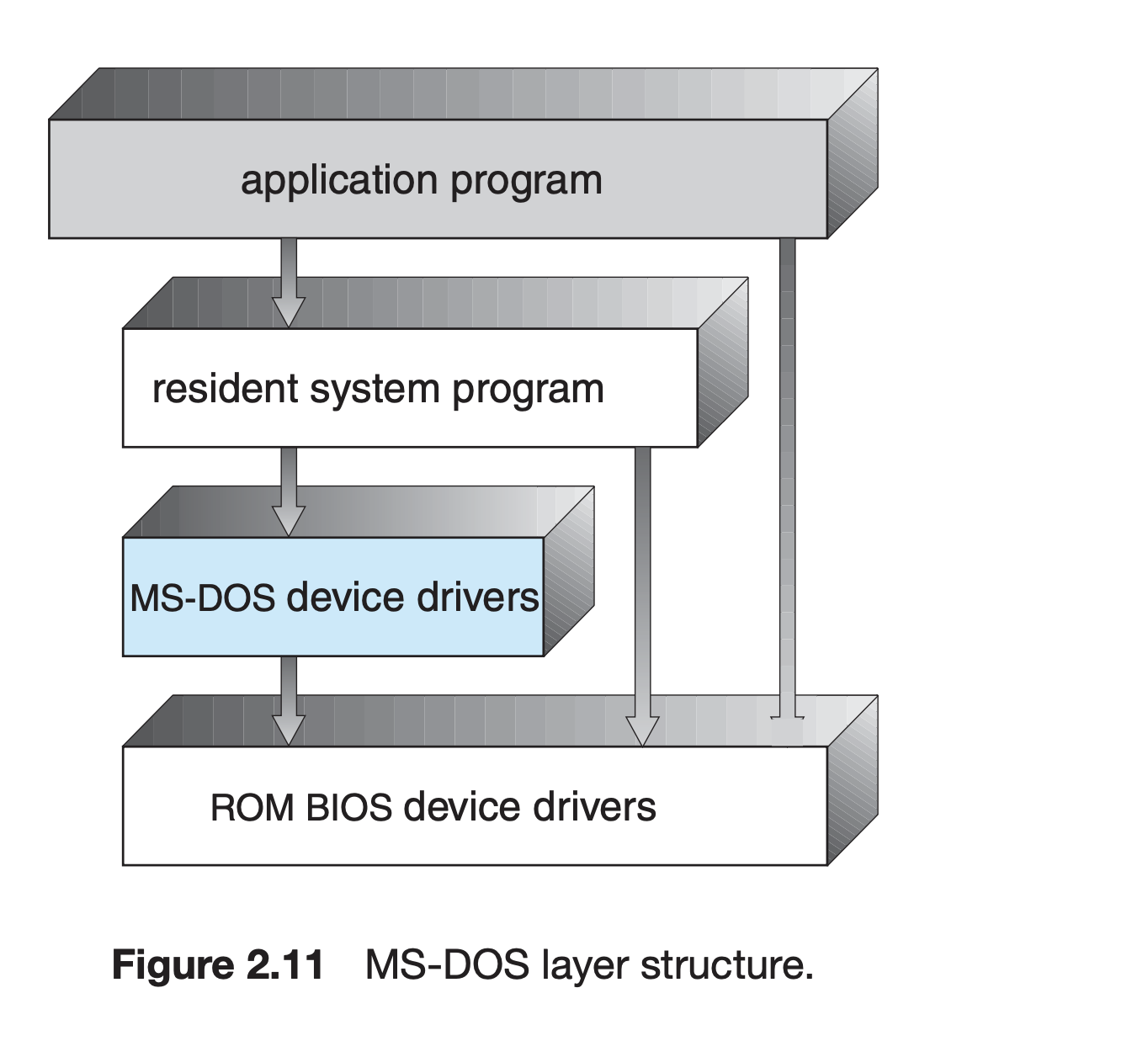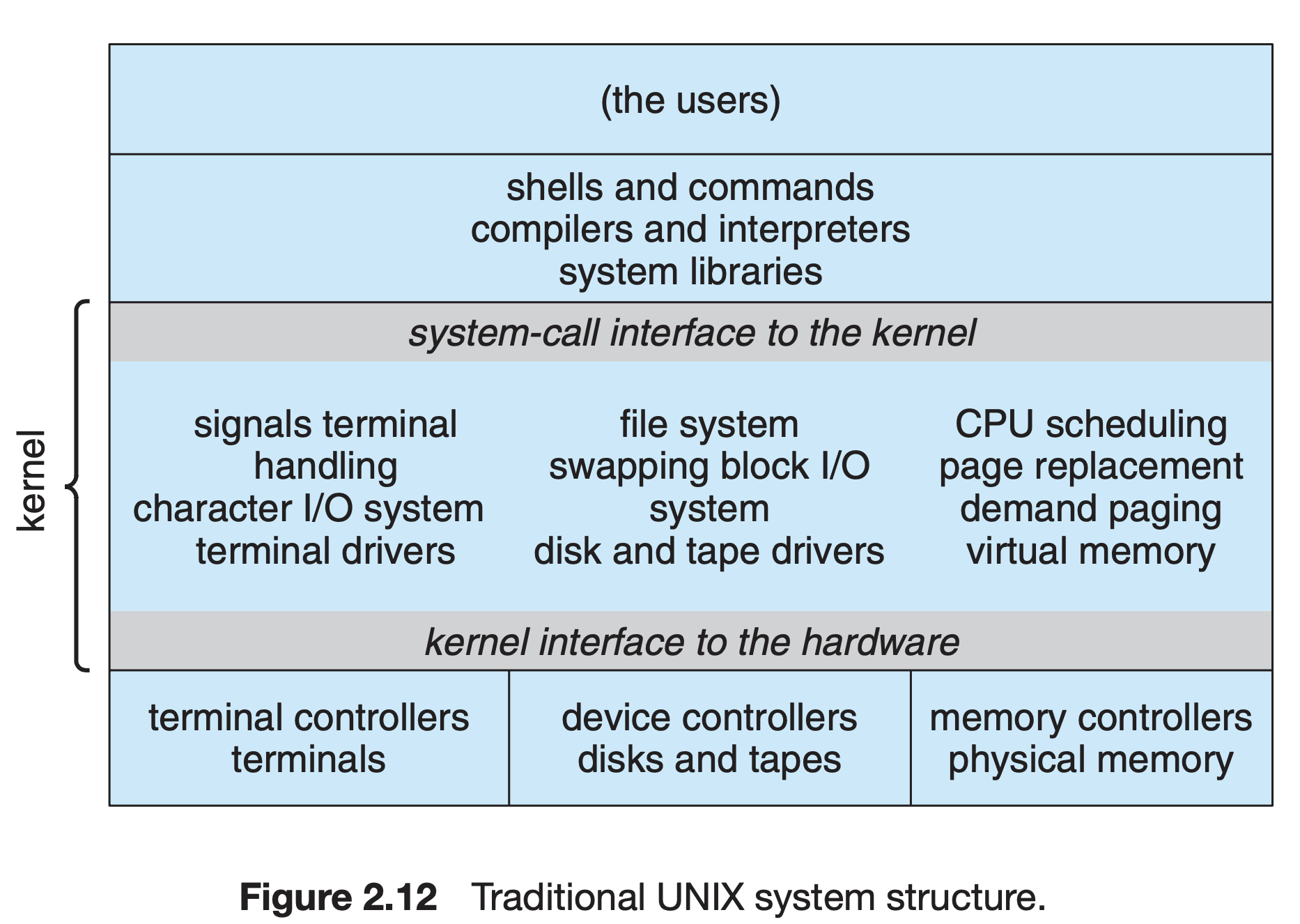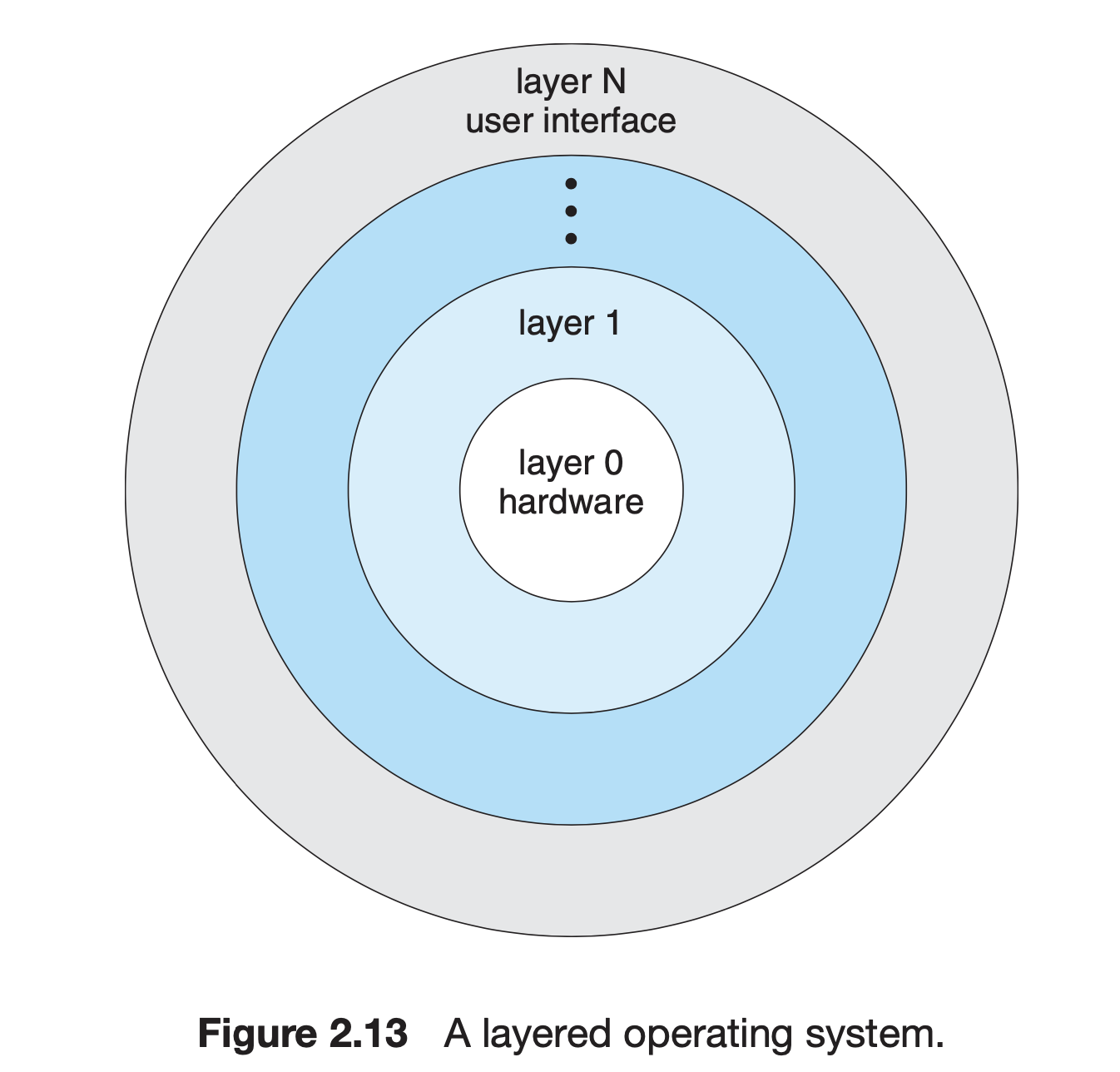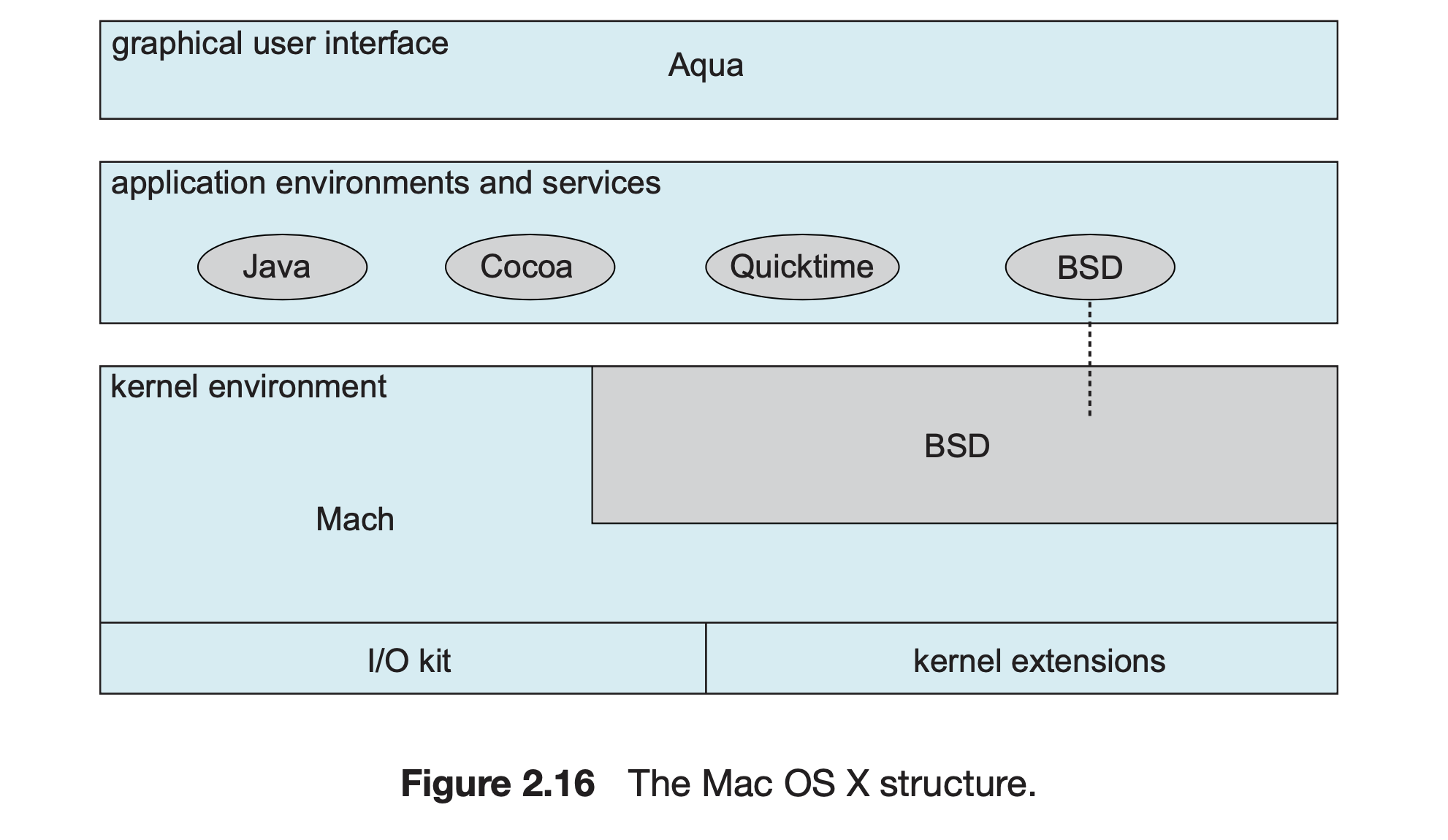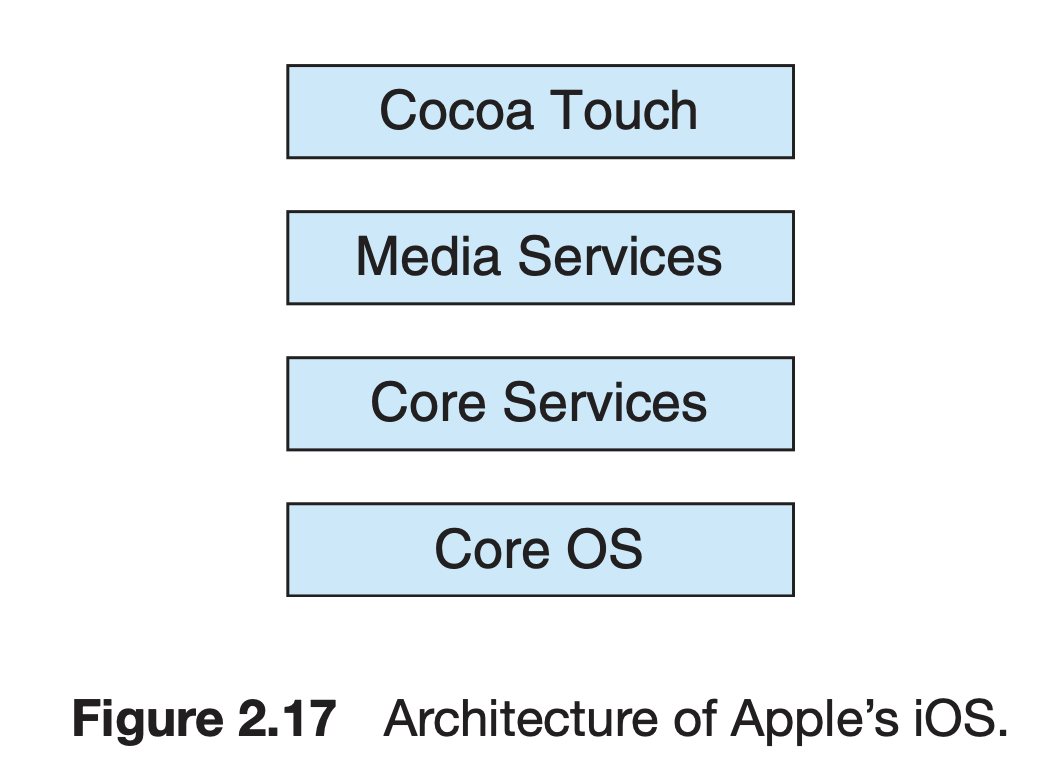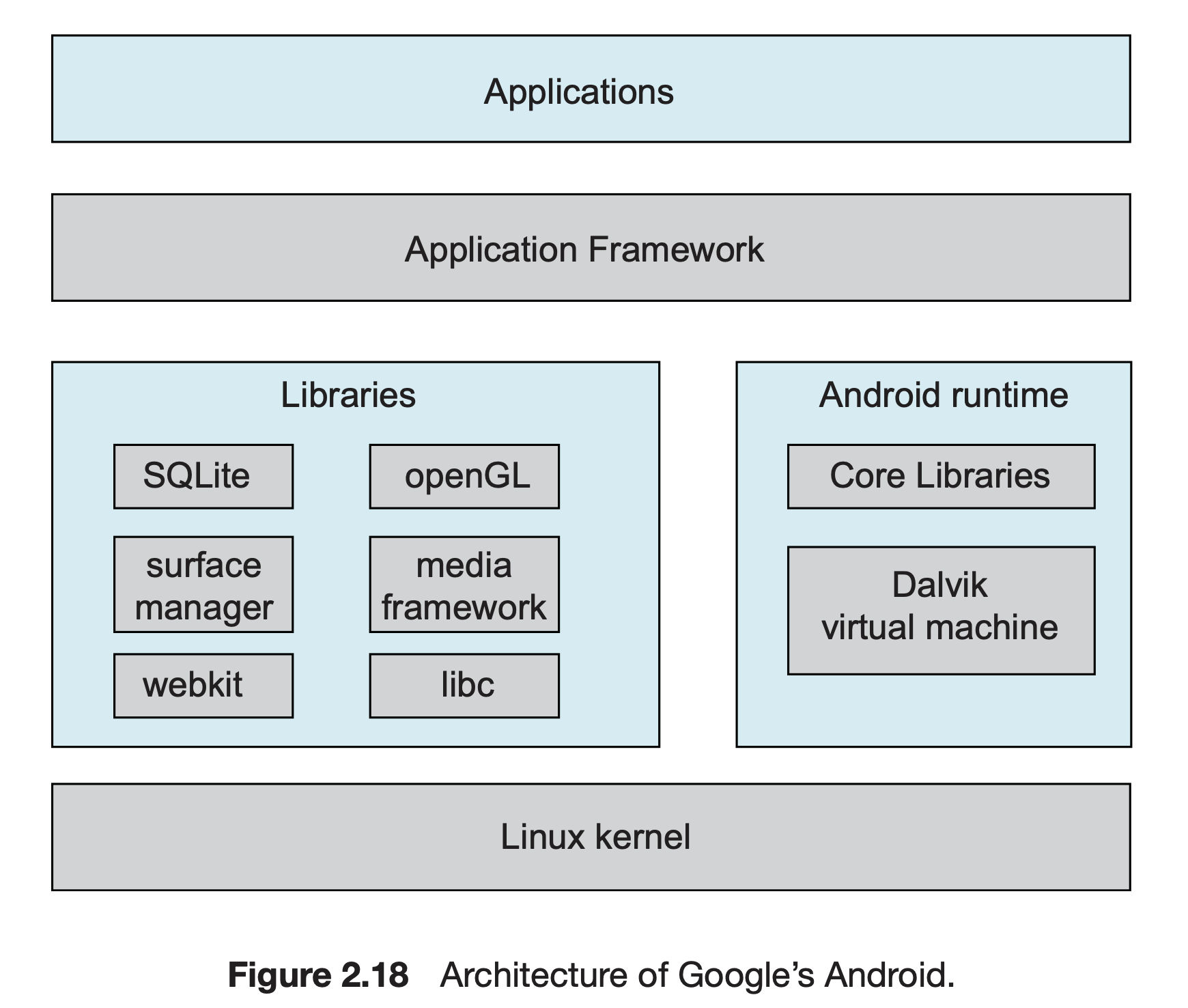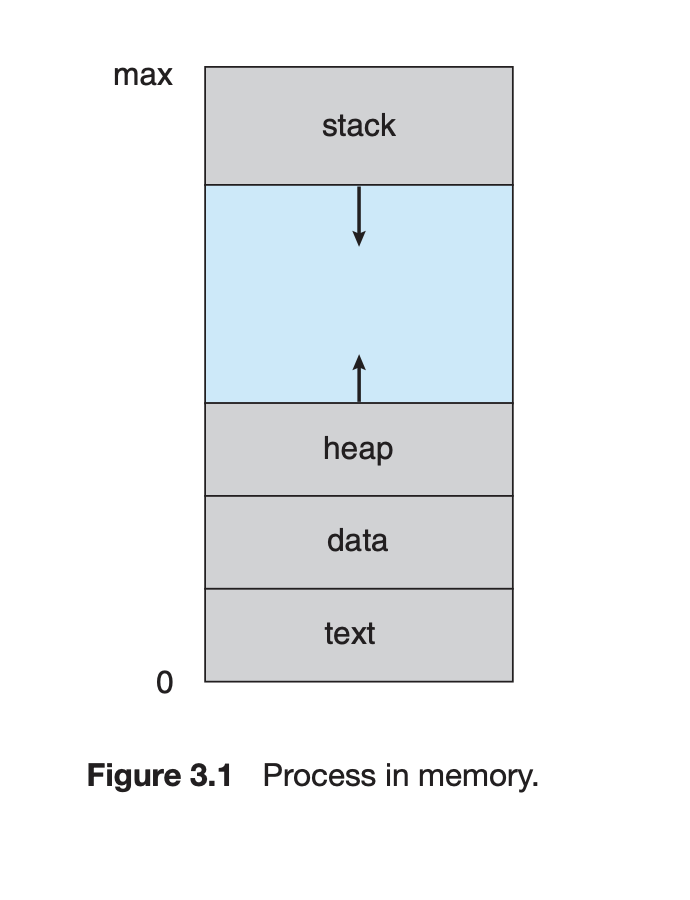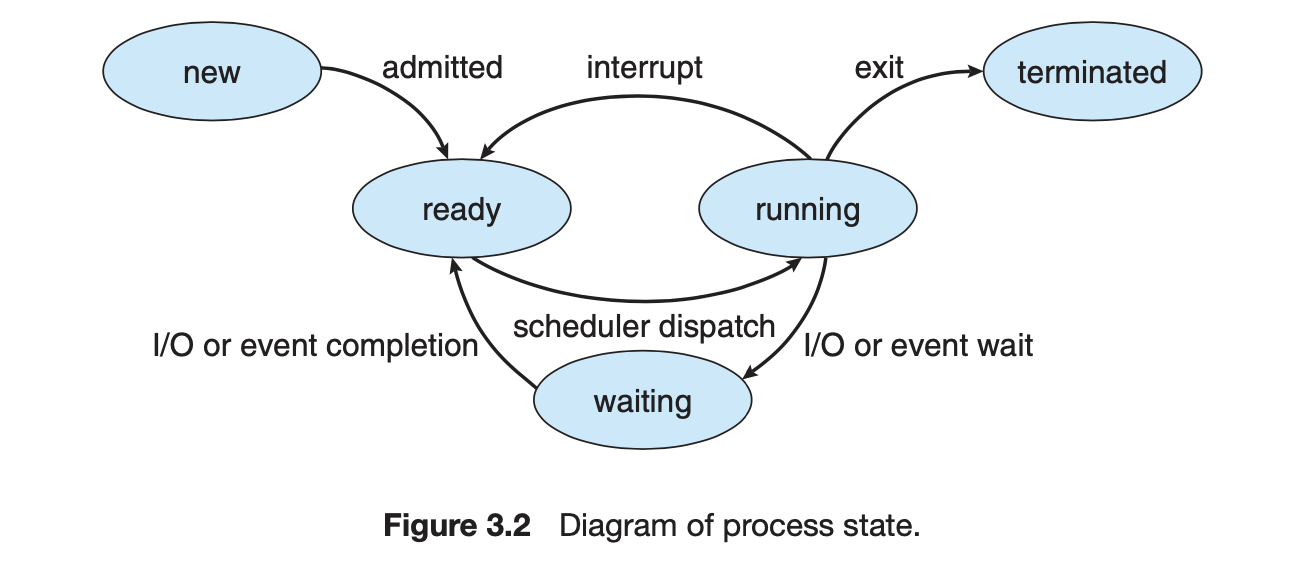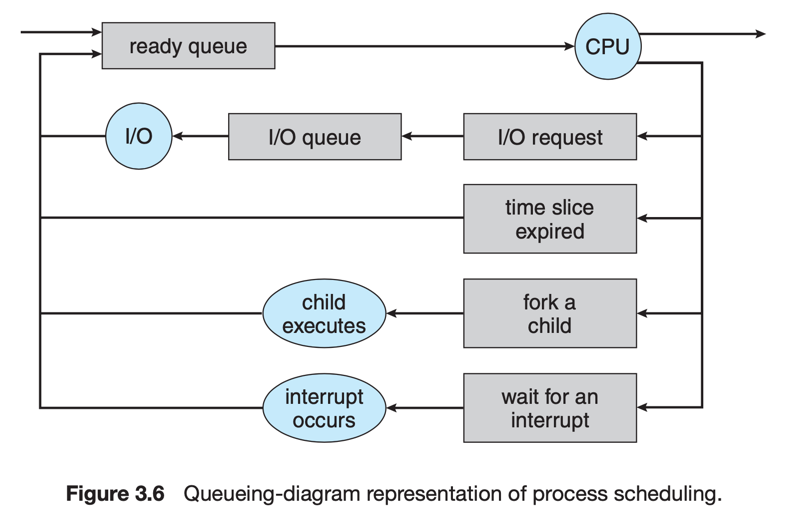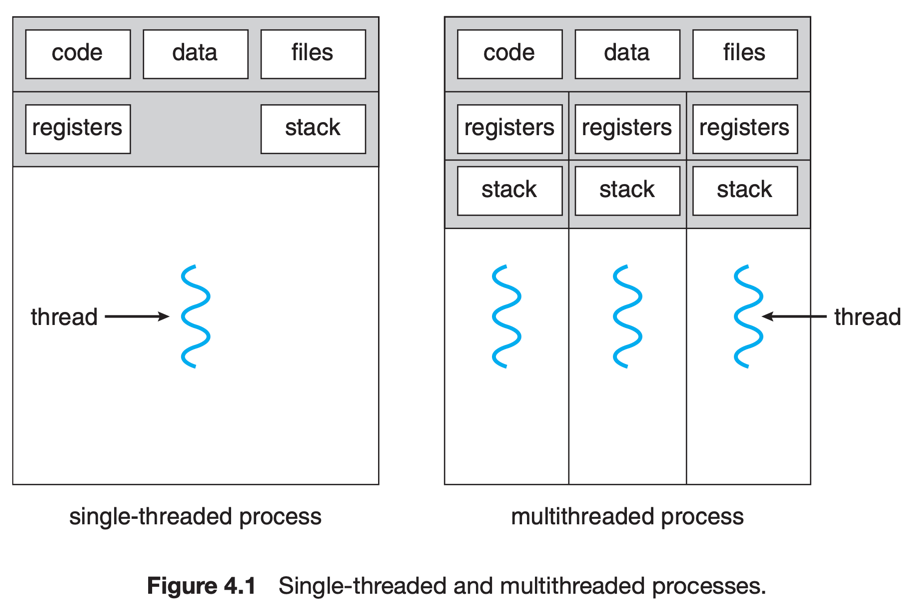type of os:
- batch
- time sharing
- single user
- multi user
- distributed
- real time
- general purpose
interrupt
- System Calls
- System Programs
- OS Design
- policy vs mechanisms
critical modules that require high performance
- interrupt handler
- i/o manager
- memory manager
- cpu scheduler
two common models of ipc (inter process communication)
- message passing
- shared memory
virtual connections between processes, users, computer systems
Background Services are called services / subsystems / daemons
Operating Systems Structure
Kernel Provides
- File System
- CPU Scheduling
- Memory Management
- One Problem - Overhead system calls
- Another Problem - Designing Layers Order
- Fewer Layers with More Functionality
MicroKernel - All Non Essential Parts are moved to system programs and User Space
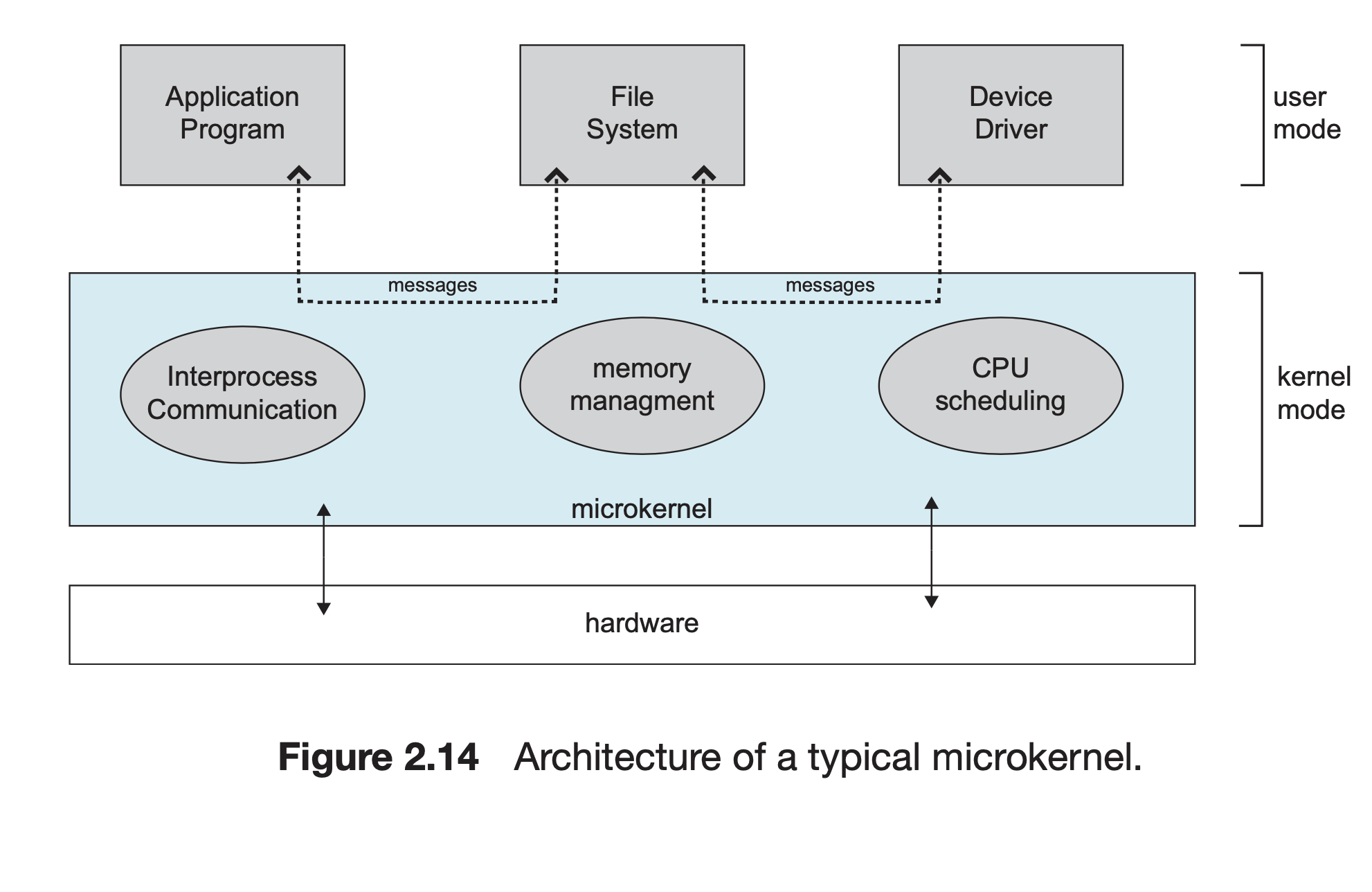 Mac OSX Darwin is also partly based on the Mach MicroKernel
Mac OSX Darwin is also partly based on the Mach MicroKernel
Loadable Kernel Modules - Linking service dynamically
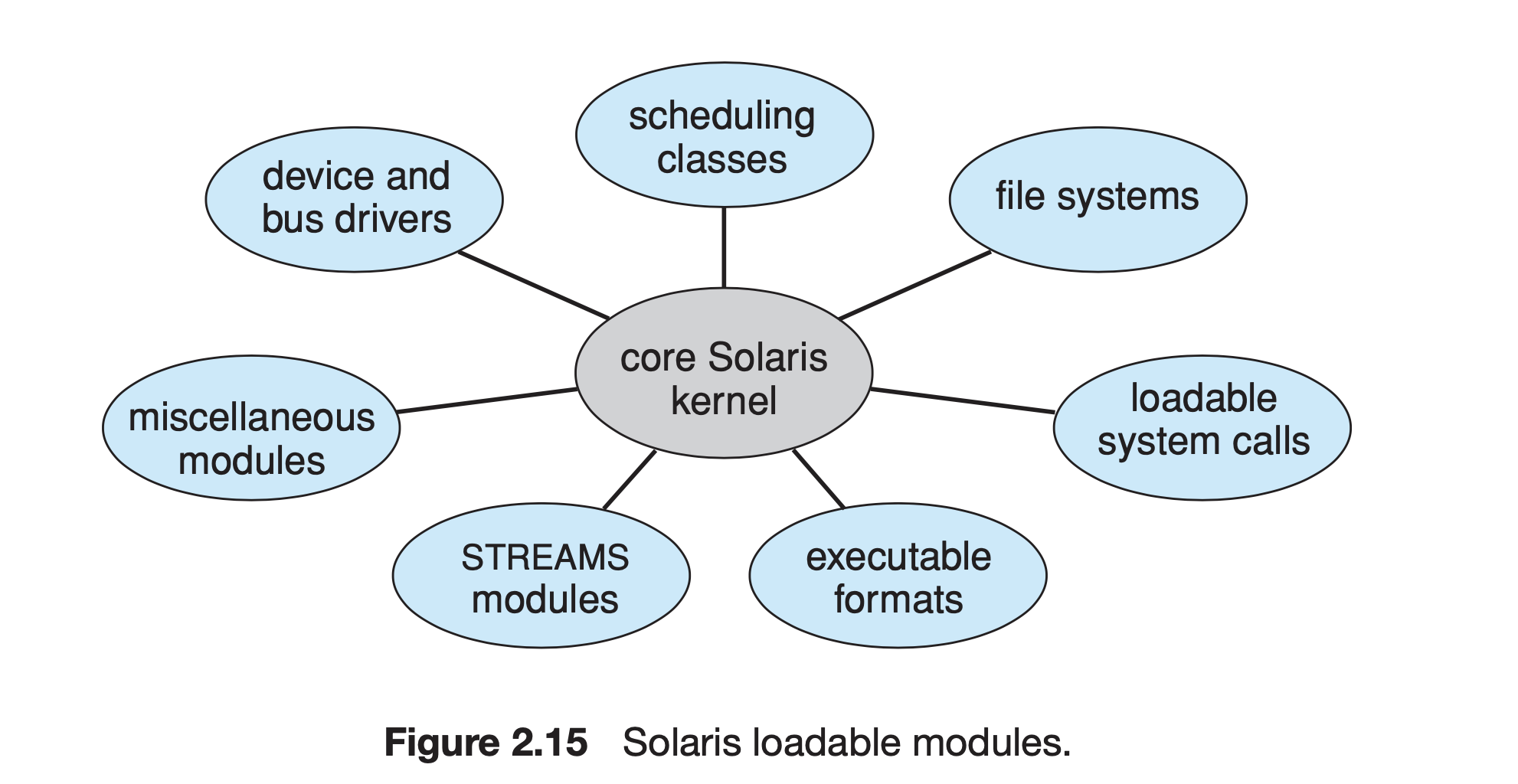
OS Debugging
- Log File
- Core Dump
- Crash
- Crash Dump
What Kernel Do in unrecoverable situation?
Save Kernel's Memory state to a section of disk that does not have any FileSystem. When Kernel encounter a unrecoverable error, it take it's entire content of memory or kernel owned part and dump it into disk section. when booting, a process runs and tries to gather the memory dump from the disk and save it as file in filesystem
Trace Listing
System Generation
- CPU
- Boot Disk
- Memory
- Device
- OS Options
System Boot
- initial bootstrap program
job == process == cpu_activities
-
processs in memory
-
a process itself can be execution environment
- jvm is a process (which takes java code and take actions via native machine instructions on behalf of that code) job == process == cpu_activities
Process State
- new - created process
- ready - ready to be assigned to processor
- running - instructions are being executed
- waiting - waiting for an event to occur (I/O Completion or reception of a Signal)
- terminated - finished execution
Scheduling Queues
- job queue
- ready queue
- device queue
once the process is allocated to CPU one of the following events may occur
- process issuing I/O request -> I/O Queue -> I/O Happens -> then it placed into the Ready Queue Again (does it stay all the time in CPU if not is it immediately moved to Ready Queue?)
- Time Slice Expired -> Moved to Ready Queue
- Fork A Child -> wait for child's termination
- Wait for an interrupt -> Interrupt Occurs -> then it process from Ready Queue
Process Termination
-
removed from all queues
-
PCB(process control block) and resources deallocated
When a request is made, rather than creating another process, the server creates a new thread to service the request and resume listening for additional requests.
